Graham Reid | | 9 min read
The MC5: Ramblin' Rose (1968)
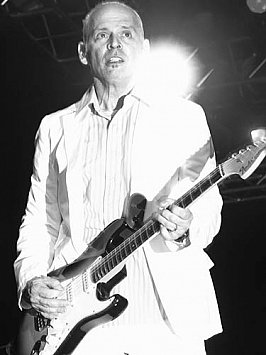
It's fair to think most people only know the noise of the MC5 through their spiritual heirs: the garageband clatter of the Datsuns, D4, Soledad Brothers, the Black Keys and other such rowdies who have an old-school r'n'b heart and amps turned up to 11.
Or maybe people know of them through the connection with their old hometown of Detroit: the Stooges, White Stripes, Dirtbombs, Eminem and others.
But it's no surprise people haven't heard of the original MC5 -- 1965-72 -- let alone heard them. They have been ignored by most rock history texts, their three albums aren't readily available, and the band members dispersed into various parts of the States or died.
But when they busted out of blue-collar Detroit in the mid-60s they made such an unholy rock'n'roll racket, arc-welded on to the White Panther revolutionary spirit of their manager, John Sinclair, that they seemed impossible to ignore.
Yet rock audiences and critics largely did ignore them. The MC5 -- the Motor City 5, a reference to Detroit as the home of the auto industry, which as the Motor Town also gave its name to Motown -- just didn't fit.
While hippies and prog-rock ruled the planet, these five guys with amps on overload demanded "revolution, dope and fucking in the streets" and went into free-form feedback and guitar-abuse jams.
Their first album Kick Out the Jams was recorded live in a Detroit club and the title track came with the punchline, "kick out the jams, motherfuckers".
The MC5 were out there: they wore gun belts and sneers, considered hippie music crap, and racked up old Chuck Berry songs alongside their revolutionary fervour.
Yet while their musical ancestors were Berry and the young Rolling Stones, they were also attuned to the free jazz of Albert Ayler, Roland Kirk, Sun Ra, and Archie Shepp, who famously said, "Let my notes be bullets". 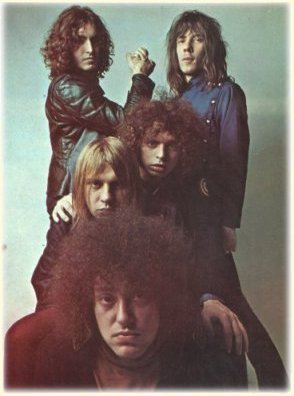
Their extended but visceral jams, and songs like Teenage Lust, also set the MC5 apart, as did the politics of get up/stand up for your rights and revolution in the streets during Richard Nixon's corrupt Administration and the anti-Vietnam War movement.
That their manager/mentor was the notorious activist and poet Sinclair (later sentenced to 10 years in prison for possession of two joints) only brought them greater and often unwanted attention. The US Defense Department filmed them while they played at a '68 protest during the disastrous Democratic National Convention.
They were troublemakers and, in their own crazy way, briefly brilliant. Their best -- and other -- moments have been collected on the album The Big Bang! which should be in any Essential Elsewhere collection.
Some original members have fallen off the planet (Fred "Sonic" Smith, who went on to become Mr Patti Smith, died almost a decade ago, singer Rob Tyner in '91) but the core of guitarist Wayne Kramer, bassist Michael Davis and drummer Dennis "Machine Gun" Thompson - plus ring-in fans like Evan Dando, Mark Arm and others - have put MC5 back on the road to possibly even greater acclaim, and certainly more dates, than they ever had back in the old days.
"Oh yeah," laughs a benign and balding 56-year-old Kramer. "It's different, and it's a different day. We just did 33 shows in 35 days in North America. You couldn't have done that in the old days. Today we have a tour bus, a crack road crew, routing and tour managers. None of that existed in the late 60s and 70s."
But evidence from press reports and the DVD of their show at London's 100 Club is that MC5 deliver the same undiluted energy which once marginalised them.
Ironically, the changing musical climate which has allowed garage-band rock to command attention again has provided the MC5 with a platform once more. And an audience which crosses the generations.
"I'm seeing the entire spectrum of the rock'n'roll fan base," says Kramer. "The thing that's the most heartening has been the father-son team, it just fills me up to find a 19-year-old with his Dad and have him say, 'My Dad turned me on to this music and I never thought I'd get a chance to see it.' That just gladdens my heart."
And Kramer believes the band has something to offer both ends of that spectrum standing there with their earplugs in. This music is still important and the message hasn't changed. Damn, it might be even more relevant today.
"For those of us who have been around a bit, we've grown up with rock'n'roll and it's still important to us. The problem is that there isn't a great deal of it that comes down the pipeline for grownups, most music is aimed at adolescents, in the marketing of it.
"But the MC5 catalogue has depth to it. If you are 19 and just want to rage that's there, but if you are looking for more than that then that's also there."
What has re-invigorated the band and allowed them to transcend the infection of re-formed bands out on a touring junket is the number of white-hot guests who have lined up to appear with them, and to acknowledge their profound influence on their own music.
They tour as DKT/MC5 (Davis, Kramer and Thompson/MC5), and in Britain, Lemmy from Motorhead, the Cult's Ian Astbury, the Hellacopters' Nick Royale and Dave Vanian (the Damned) joined them on various stages; the Lemonheads' Evan Dando and Mudhoney's Mark Arm are with them for the Australia/New Zealand dates (Deniz Tek of Radio Birdman played Aussie dates also); and in Japan it was the Hives' Howlin' Pelle Almquist.
When they get back to the States they'll be joined by Marshall Crenshaw, and Mark Lanegan of Screaming Trees and Queens of the Stone Age. In Europe, Johnny Walker of the Soledad Brothers hooks up. With fans like these ...
"Yeah, it's terrific and this is a new dynamic and I'm enjoying it immensely. As far as rehearsals? Well, that's case by case.
"With the guys that are doing more than a couple of dates we have more than a couple of rehearsals, other people that might be doing just one or two shows will rehearse at soundcheck, and with different horn sections we rehearse between the soundcheck and the gig.
"And with some people it's absolutely in the moment, they walk on the stage and we see what happens," he laughs.
Times have changed, of course, and while they came from the blue-collar underclass, since then the world - and America in particular - has gone through the Me-Decades. There's a more entrenched cynicism about whether revolution is possible, but at core the MC5 message hasn't changed.
"It's a message of self-efficacy and self-determination, and that you can make a difference," says Kramer. "That you can make a contribution, whatever it might be that you have to give in that day. But to do that you have to do it wholeheartedly; if that means your involvement in your work, your art, your community, your politics, family or relationships, you have to do it without reservation to get results.
"I think the answer is in self-determination. The artist's responsibility is to upgrade his audience's listening taste ... to do things with passion and commitment. You can't give something away that you don't have.
"But things are different today. When our generation was in our late teens we had an agreement that the way the world was going was wrong and that we wanted to be heard, that we had something we wanted to say.
"Today I don't get the sense there's an agreement. We've been through a period of great self-centredness and there isn't an agreement in the sense of a community."
After that extraordinary debut album (with its expletive) they were dropped by their label. They recorded Back in the USA with a young Jon Landau producing (he went on to edit Rolling Stone and "discover" another blue-collar outfit, Bruce Springsteen and the E Street Band). Then there was the High Times album and it was all over.
But they'd been strong to survive even that long. Something in the Detroit environment perhaps?
"Yeah, Detroit is traditionally a very tough place to make something happen and to make something out of nothing.
"In Detroit it takes an extra degree of commitment, you have to really apply yourself to get anywhere. It's not Paris, Los Angeles or New York so it's hard to get anything going - which is good in a way because you have to get hammered out on the forge.
"It has its advantages though, as evidenced by the White Stripes and Eminem. Eminem exists outside of the centres of hip-hop and he's white - but this is his music, too.
"That's the thing about being a Detroiter, none of us ever really drew the distinction between 'their' music and 'our' music. It was all our music. James Brown's music is my music, John Coltrane's music is my music."
And Detroit also puts aspiration in perspective, says Kramer. "I don't have a sense of entitlement and I am completely happy and willing to be in the rank and file of humanity.
"I live in Hollywood today and I see all the time this sense of entitlement that comes with success, and I see the damage that it does. There's nothing wrong with success. But I can't put money and success first. That's where the trouble comes."
Not that money was much of a worry. The trickle from the MC5 isn't enough to live on, so Kramer does music for film and television, which pays the rent. He also produces bands and people hire him to play guitar on their records.
"The MC5 were pretty much written out of rock history, and that doesn't translate to dollars and cents. It's nice to be recognised for your work, but $3 will get you a cup of coffee at Starbucks.
"However, musicians have always recognised the work of the MC5 and I consider that my tribe.
"Most musicians play for other musicians. I do. But what I've learned on this tour is, and I never knew this, there were just so many regular music fans that our music meant so much to. This has been a minor miracle to me. Average people show up and know this music intimately, word for word and line for line.
"It's very humbling. I had no idea. I've been pleasantly blindsided."
DKT/MC5 reviewed: Auckland, August 2004
Well, we knew they couldn't be like they once were. That "once were" was more than 30 years ago. But we had every right to expect them to be a little better - no, a lot better - than this.
The three remaining members of Detroit band the MC5, plus a revolving door of guests-cum-fans, have been touring a lot lately, but on Wednesday there was the clear sense they were feeling a little puffed out. This smacked of the last weary gig on a long haul, and time for a lie down - which guest Evan Dando, looking unwound, seemed in danger of doing right then.
Disappointing? You can believe it.
The band seemed to be operating on half-volume - remember the old saying, "Turn it up, I can still hear the words"? - and even when guitarist Wayne Kramer unleashed his blowtorch staccato r'n'b solos you yearned for it to reach the pain threshold. It fell far short.
Even with the distraction of a horn trio who seemed to have wandered in from a Ricky Martin gig - all bouncy and funky dancin' when the music was flat-out pop-rock - the MC5 struggled to keep attention.
I haven't seen a "You are what you eat" T-shirt in a couple of decades but it has to be said that bassist Michael Davis, who was wearing one, looked a poor advertisement for whatever dietary regime he has been on. And I suppose that was guest vocalist Mark Arm from Mudhoney (introductions and stage banter were non-existent in the short time we stayed), but if so he was hugely underwhelming and woefully lacking in vocal power.
From the opening with Kramer on Ramblin' Rose through unaffecting treatments of Call Me Animal and Shakin' Street (Dando barely managing to stay in tune on a leaden version of a song that should have had the pop-firepower of the Ramones) this was unfortunate all round.
Maybe it all got better, maybe someone turned the sound up and poured reviving medicine into Dando, maybe there was a fight or someone fell off the stage, I dunno.
When, a weary half-hour in, they hit High School with the line "the kids just wanna rock" I agreed, but would add so do older folk in the MC5 demographic. And it wasn't happening here.
Oh, some will say it is all different now, that this mature stuff was somehow better than all that adolescent passion of three decades ago, that it was great to see them here, and didn't Dando look kinda funny and out of it.
I don't know and I don't care.
Rock'n'roll is about your right to say, "No!" So we hit the street and got a cab home. It'll be a while before I drag out my battered copy of Kick Out The Jams again.


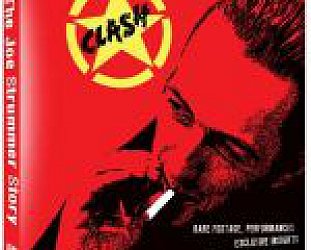

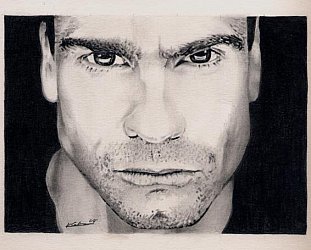

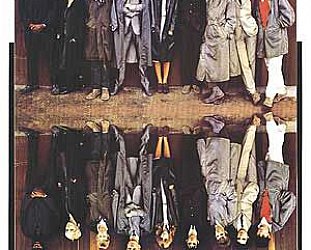
post a comment